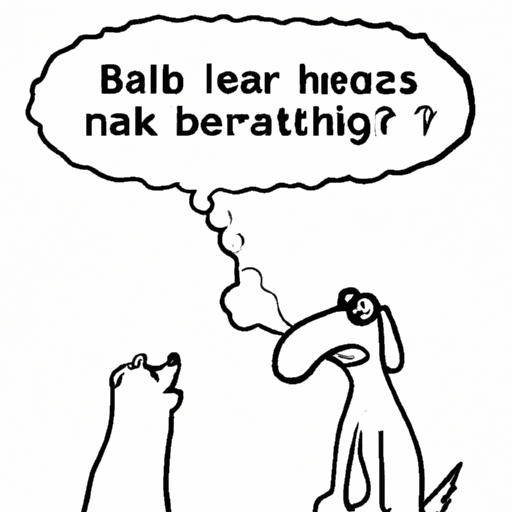Having a dog as a part of your family is a wonderful experience. However, there are some things about pet ownership that are less than pleasant. One of those is dealing with your dog’s bad breath. It’s something that all dog owners have experienced at some point. But why does your dog’s breath smell?
H2: Understanding Your Dog’s Oral Health
Taking care of your dog’s oral health is just as important as looking after their diet and ensuring they get enough exercise.
Just like in humans, a dog’s mouth is full of bacteria. While most of these bacteria are harmless, some can contribute to bad breath. Plaque and tartar build-up on your dog’s teeth can also cause a foul smell.
Here are some common causes of bad breath in dogs:
-
Periodontal Disease: This is the most common cause of bad breath in dogs. Plaque and tartar build-up lead to inflammation and infection in the mouth.
-
Gastrointestinal Issues: Sometimes, the cause of bad breath can stem from the stomach. If your dog has a digestive issue, it can cause a foul smell.
-
Oral Tumors: In rare cases, oral tumors can cause bad breath. If you notice a persistent, unusual smell, it’s best to consult your vet.
H2: How to Prevent Bad Breath in Dogs
Preventing bad breath in dogs is mostly about maintaining good oral hygiene. Here’s how you can help:
-
Brush your dog’s teeth regularly. This is the single most effective way to prevent bad breath. Aim to brush your dog’s teeth every day or at least a few times a week.
-
Provide dental chews and toys. These can help to clean your dog’s teeth and freshen their breath.
-
Regular vet check-ups. Regular dental check-ups can help to catch any potential oral health problems early.
H2: Understanding What Your Dog’s Breath Smells Like
Different smells can indicate different health problems. Here’s a table to help you understand what certain smells might mean:
| Smell | Possible Cause |
|---|---|
| Sweet or fruity | Diabetes |
| Urine-like | Kidney Disease |
| Unusually foul | Oral Tumor |
H2: When to Consult a Vet
If your dog’s bad breath persists even after trying to improve their oral hygiene, it’s best to consult a vet. They can help to identify any underlying health issues that might be causing the bad breath.
H2: The Impact of Diet on Your Dog’s Breath
Just like in humans, a dog’s diet can significantly impact their breath. Foods with strong smells, such as fish or liver, can cause temporary bad breath. Some dogs might also have a reaction to certain types of food that can cause bad breath.
FAQs
Q: How often should I brush my dog’s teeth?
A: Ideally, you should brush your dog’s teeth every day. However, a few times a week is also acceptable.
Q: Can bad breath in dogs be a sign of other health problems?
A: Yes, bad breath can sometimes indicate other health issues such as diabetes or kidney disease.
Q: What kind of food should I feed my dog to prevent bad breath?
A: A balanced diet is important. Avoid foods with strong smells, and consider adding dental chews to your dog’s diet.
Remember, as a caregiver, your role is to ensure the well-being of your furry friend. Their oral health is just as important as their physical health. By being proactive and attentive, you can ensure that your dog’s breath stays fresh and their smiles remain bright!



